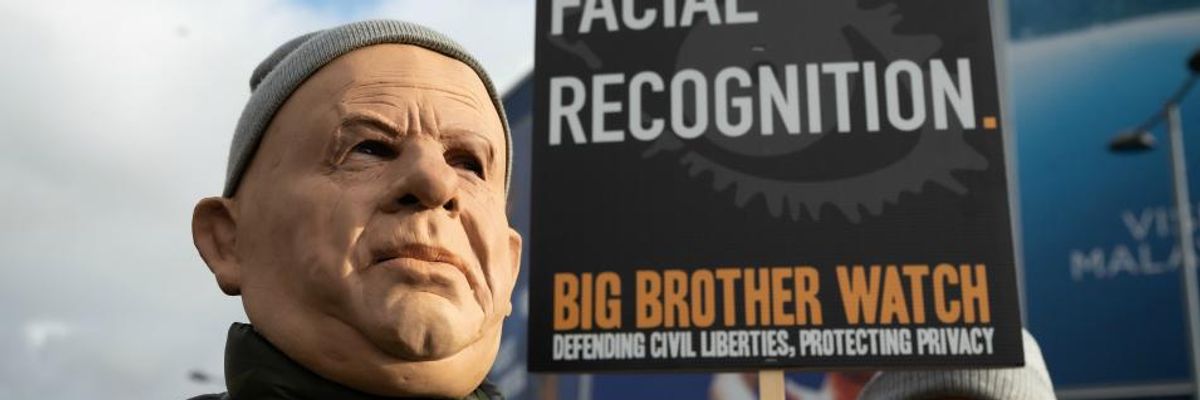The ACLU and nearly 40 other rights groups are calling on Congress to enact a ban on law enforcement use of facial recognition technology and end federal investments in the notoriously inaccurate and invasive surveillance tool.
"This surveillance technology is disproportionately inaccurate, is targeted at already overpoliced communities, and is a threat to our privacy and civil liberties."
--Neema Singh Guliani, ACLU
In a letter to congressional leaders Thursday, the groups cite the story of Robert Williams, a Black man who was wrongfully arrested and detained for nearly 30 hours by Detroit police after Michigan State Police facial recognition technology falsely matched video footage of a shoplifter with Williams' old driver's license photo. The ACLU of Michigan filed a complaint against Detriot police on Williams' behalf last week.
"But, even if the technology were accurate, it cannot be dissociated from the racist policies that are embedded in policing," the groups wrote. "Face recognition will not fix these problems; it is likely to make them worse by providing another flawed tool that will be disproportionately targeted at communities of color."
The letter was also signed by the Algorithmic Justice League, the Georgetown Law Center on Privacy and Technology, and the National Association of Criminal Defense Lawyers.
The organizations urged Congress to pass the Facial Recognition and Biometric Technology Moratorium Act (pdf), legislation that was introduced in the House and Senate last week. The bill would prohibit use of facial recognition technology by federal entities and strip federal funding from state and local police departments that fail to ban use of the surveillance software.
"As the Williams story shows, the harms of face recognition are real for communities across the country," Neema Singh Guliani, senior legislative counsel at the ACLU, told The Hill. "While many details about law enforcement use of this technology wrongly remain secret, the information we do have is cause for alarm."
"This surveillance technology is disproportionately inaccurate, is targeted at already overpoliced communities, and is a threat to our privacy and civil liberties," Guliani added.




